Stress Management: Stress is an unavoidable part of life. We all experience it in one form or another, whether it’s work deadlines, financial pressures, relationship issues, or simply too many things to get done in too little time. While a little stress can help motivate and focus us, too much can seriously impact our mental and physical health.
The key is not eliminating stress altogether, but learning healthy and adaptable ways to manage and master it. This comprehensive guide covers all aspects of effective stress management. Read on to understand your personal stress triggers, practice science-backed coping strategies, and create acustomized action plan for handling whatever life throws your way.
Understanding Stress: Symptoms, Causes & Health Impacts(Stress Management)
Before diving into stress management techniques, let’s quickly review what stress actually is, how it affects the body and mind, and common root causes.

What Exactly is Stress?
Stress is your body’s natural response to perceived threats, changes or pressures. From an evolutionary standpoint, it fuels your innate “fight-or-flight” reaction, helping you act quickly in the face of danger.
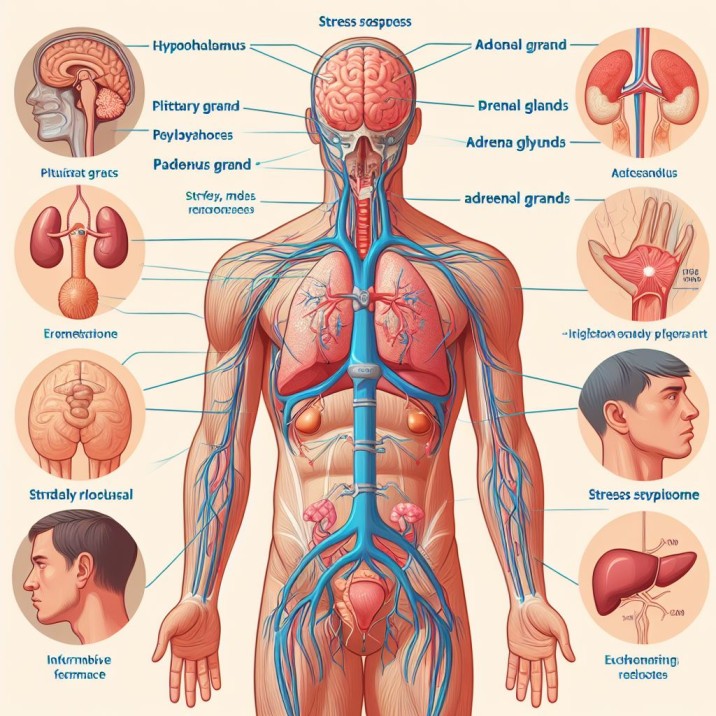
In today’s world, dangers are less about threats from wildlife and more about work overload, money issues, or relationship problems. But your body still reacts the same way.
When stressed, your nervous system activates, flooding your body with hormones like adrenaline and cortisol. This speeds up heart rate, breathing, and metabolism to prepare you to “fight” or “flee.” Of course, most modern day stresses don’t require physical fighting or running, which leaves these hormones swirling around with nowhere to go.
Common Signs & Symptoms
Frequent or chronic stress often produces:
- Mental symptoms: Anxiety, irritability, difficulty concentrating or making decisions, constant worrying, racing thoughts.
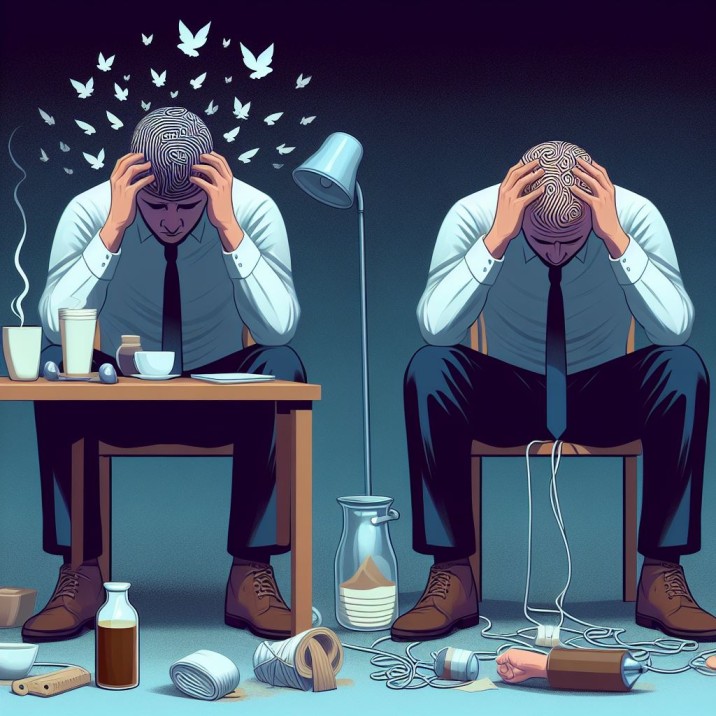
- Emotional symptoms: Moodiness, feeling overwhelmed, loneliness, depression.
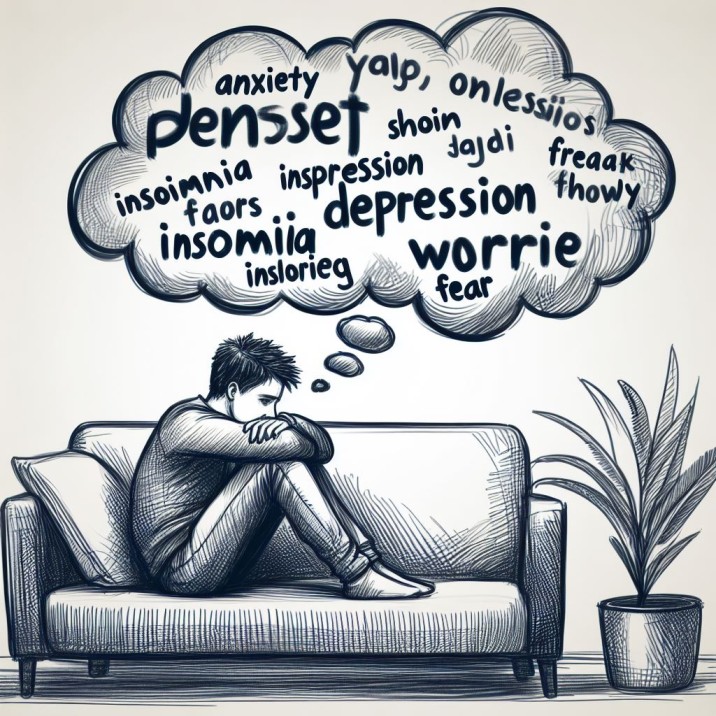
- Physical symptoms: Headaches, muscle tension, stomach issues, chest pains, fatigue.

If left unchecked for long periods, stress can also lead to or worsen certain health conditions like heart disease, high blood pressure, diabetes, skin conditions, asthma, arthritis, and more.
Major Causes & Stress Triggers
We all have unique stress triggers based on lifestyles, personalities and coping abilities. But most fit into a few key categories:
- Workplace stressors – Heavy workloads, long hours, job insecurity, conflicts with boss or colleagues.
- Life stressors – Money issues, health problems, relationship conflicts, children’s problems, divorce, grief, moves, transitions.
- Personality-related – Pessimism, perfectionism type A tendencies, lack of work-life balance.
- Daily hassles – Traffic jams, issues at the store, arguments with friends, misplacing keys or wallet.
Pinpointing your personal stress triggers is important for managing stress effectively long term.
Short Term Relief: Stop Stress in Its Tracks(Stress Management)
When you start to feel stressed in the moment, using quick relaxation techniques can help halt the fight-or-flight response and calm both body and mind. Try these proven methods:
Deep Breathing Exercises
Taking slow, deep breaths is one of the fastest ways to activate your parasympathetic nervous system and signal your body to relax.
- Inhale slowly through nose for 5 seconds.
- Hold breath for 2 seconds.
- Exhale very slowly for 5+ seconds.
- Repeat for 2-5 minutes until calmer.
Be sure to breathe with your diaphragm, allowing your belly to expand on the inhale. Place one hand on your chest, one on your stomach to help.
Muscle Relaxation
This technique releases physical tension that builds up with stress.
- Sit or lie comfortably and uncross arms/legs.
- Take a slow, deep breath. On exhale, deliberately squeeze then relax each muscle group (start at feet, moving up).
- Focus on how muscles feel when tense vs when relaxed.
- Repeat 1-3 times body-wide or just target problem areas.
Combine with deep breathing for added punch.
Guided Visualization
Visualization uses mentally-generated images to induce the relaxation response. Studies confirm it’s highly effective for anxiety.
- Get comfortable with eyes closed. Take slow, full breaths.
- Picture your “happy place” rich in detail – Could be a beach, forest trail or cozy room. The key is something calming.
- Spend 5+ minutes exploring the scene using all your senses – sights, smells, sounds, feels.
- Let imagery wash away stress completely. Return if tension creeps back.
Apps & Audio Tracks
Modern technology offers some excellent shortcuts to instant relaxation. When you can’t do exercises manually, try phone apps like Calm or websites with breathing/meditation recordings like these from UCLA Health.
Lifestyle Changes for Long Term Stress Resilience
Daily quick fixes keep stress manageable moment to moment. But preventing chronic stress requires optimizing your routine habits long term. Small tweaks across these 5 key areas = big impact:
1. Diet & Nutrition
A healthy, whole foods diet reduces inflammation that makes stress harder on the body physically. Key nutrients also buffer impacts on mood/emotions.

Eat more:
- Probiotic foods – For healthy gut = healthy mind. Yogurt, kefir, kimchi, kombucha, sauerkraut.
- Magnesium rich foods – Shown to moderate body’s stress response. Spinach, avocado, nuts, seeds, beans, tofu.
- Fatty fish – Omega-3’s protect against stress-related heart issues. Salmon, mackerel, sardines.
- Complex carbs – Help serotonin production. Whole grains, sweet potato, brown rice, oats.
- Antioxidants – Combat cell damage from chronic stress. Berries, leafy greens, citrus, peppers.
Avoid: Excess caffeine, alcohol, refined carbs, sugary/fried foods. These all increase inflammation.
2. Exercise & Sleep
Physical activity and sleep quality help regulate key hormones thrown off by stress. Prioritizing both makes a difference.
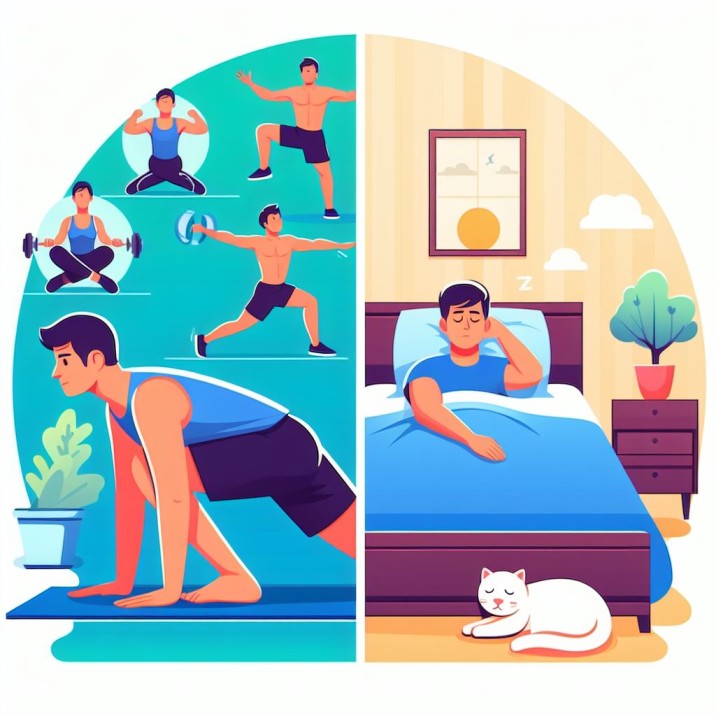
Moderate intensity exercise 30-60 mins daily balances cortisol/insulin/blood sugar levels, while releasing endorphins that elevate mood naturally. This offsets stress-related depletion. Options like brisk walking, swimming, light weights or cardio machines work well for most.
Aim for 7-9 hours of quality sleep nightly. Turn off screens 1+ hour before bed, establish a calming pre-bedtime routine, keep bedroom dark/cool/quiet. Consider blackout curtains, white noise machine, blue light blocking glasses. Address any sleep disorders.
3. Time Management & Work-Life Balance
One huge stressor for many is feeling like too much to do and not enough time. Staying organized, identifying priorities, building in life balance offsets this.

- Use productivity tools – Calendars, to-do lists, project management apps like Asana/Trello/Todoist.
- Plan weekly – Designate 2 hours every Sunday to schedule upcoming week. Block focus time daily for essential (not urgent) tasks.
- Beat procrastination – Break big projects down into steps with timed deadlines. Give yourself mini rewards for completing each milestone.
- Delegate – Outsource tasks that drain you to others who can assist. virtual assistants are cost-effective.
- Unplug with purpose – Set device-free blocks for quality time with loved ones, favorite hobbies/outlets.
4. Social & Emotional Support
Humans thrive best with meaningful connections and a sense of belonging. Make developing relationships a priority for lower stress.

Nurture friendships – Plan regular video chats or weekly walking dates. Join clubs related to hobbies or causes important to you. Being engaged offsets isolation.
Access emotional support – Seek counseling if coping issues surface frequently. Validate feelings with trusted confidants. Practice vulnerability by sharing real challenges with those who care about you.
Practice self-care – Do activities that nourish your spirit and spark joy like journaling, art, dance/music, time in nature, meditation, massage.
5. Adopt Stress-Busting Habits & Activities
Small daily rituals or micro-breaks to disengage the nervous system act like mini resets during stressful days.
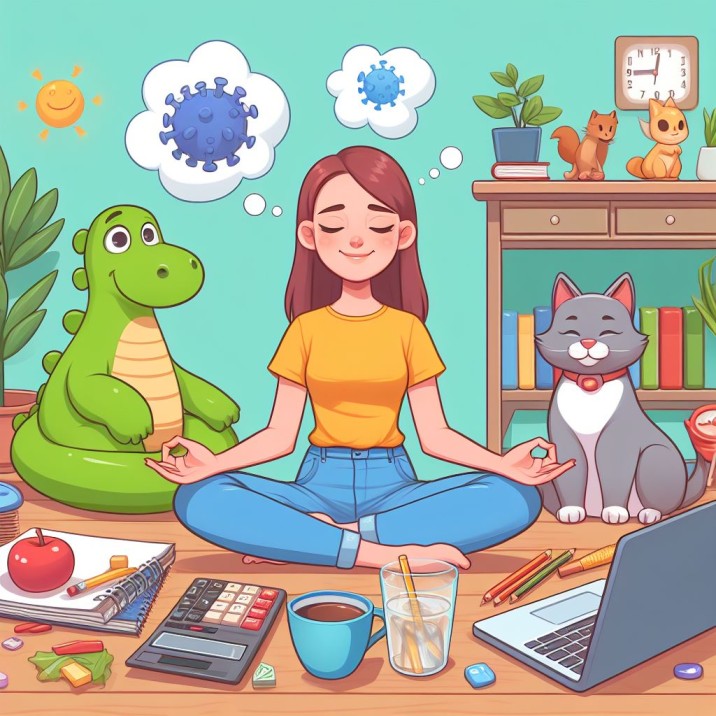
Morning routines – Start each day intentionally rather than rushing. Try: gratitude journaling, light stretching, meditating, inspirational reading.
Mid-day restore – Take 5-10 minutes during lunch to walk outside, listen to energizing music, decompress.
Unwinding transition – Arriving home stressed makes relaxing later harder. Pause first to stretch, sip tea, take cleansing breaths.
Micro-breaks – Set phone reminders to pause working every 45-60 minutes. Even 30 seconds of mindful breathing interrupts stress response.
Sleep rituals – Power down digital devices 30+ minutes before bedtime. Sip chamomile tea. Do gentle yoga. Read fiction (not news!).
When to Seek Professional Help
Implementing positive lifestyle changes offers natural stress protection for most. But if you answer “yes” to several of the questions below or feel overwhelmed/immobilized by stress, seeking counsel is wise.
- Does stress severely impact your day-to-day quality of life?
- Do you use unhealthy behaviors like overeating, excess drinking, drugs, gambling as coping mechanisms?
- Do you have panic attacks, uncontrolled worrying thoughts or struggle regulating emotions?
- Are stress symptoms causing problems with relationships or work performance?
- Have you had suicidal thoughts or feel completely hopeless?
Start by consulting your primary doctor or a mental health professional like a psychologist or licensed therapist. For severe anxiety or trauma, psychiatrists can also prescribe medications to help in combination with counseling.
Some find support groups helpful by connecting with others facing similar struggles. Many now meet online. Psychology Today offers a directory searchable by location and condition.
Start Your Stress Management Journey
We all experience stress differently. There’s no instant, one size fits all solution. But by better understanding your personal triggers, symptoms and options for relief, you can tailor an approach that empowers you to master stress for good.

Try utilizing this full toolkit:
When Feeling Stressed:
- Take a few minutes for quick relaxation techniques
- Scan for any immediate needs – Food? Support person to vent to? Short physical activity break? Saying “no” to non-urgent demands?
Daily:
- Incorporate stress-reducing habits into regular lifestyle
- Monitor stress levels objectively – Keep notes on triggers, physical signs, mood impacts, etc.
- Review progress weekly – What’s working well and not? Adjust approach accordingly.
If Overwhelmed:
- Remember stress eases with time and support
- Confide in trusted friends and seek professional assistance if needed
- Be compassionate with yourself – We all struggle sometimes. You’ve got this!
Stay the course utilizing a customized game plan, and you’ll be mastering stressful situations more smoothly before you know it. Here’s to more peace, productivity and purpose ahead!







